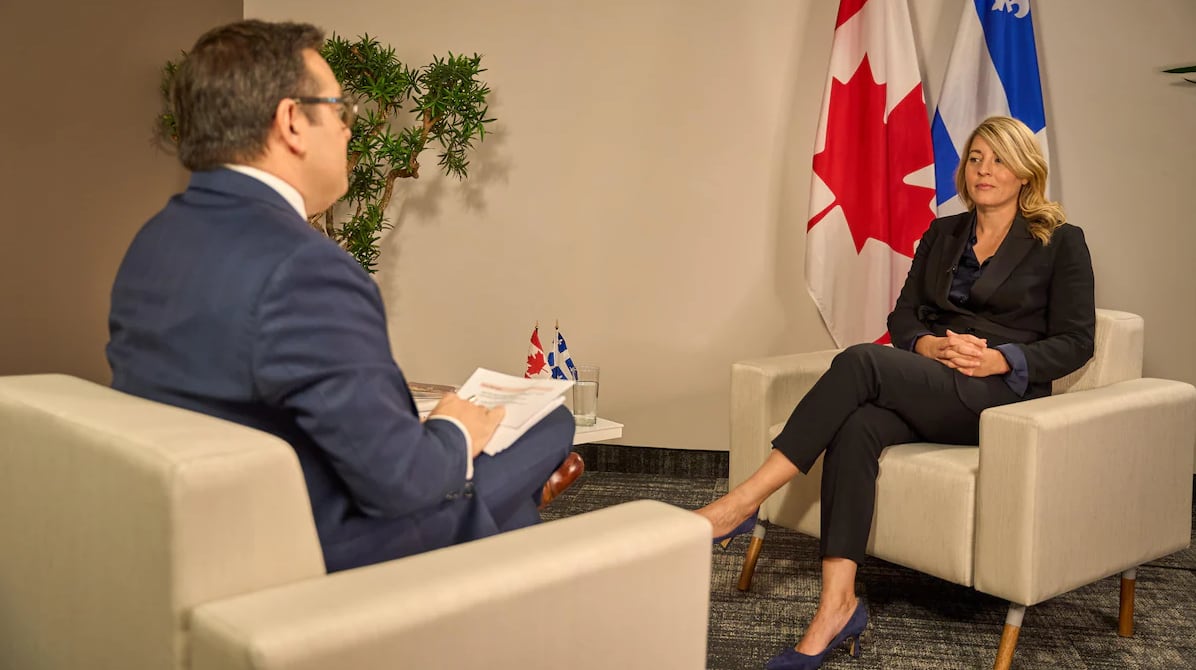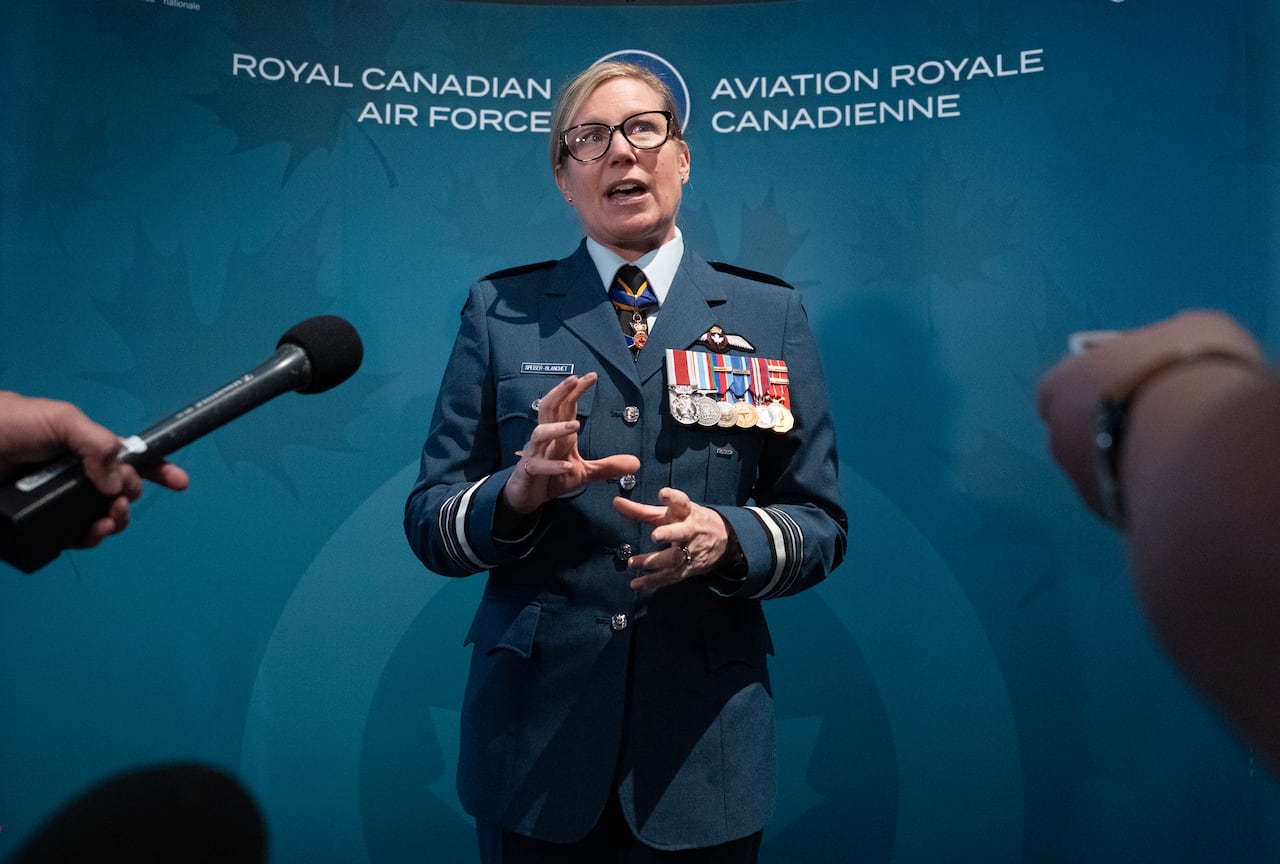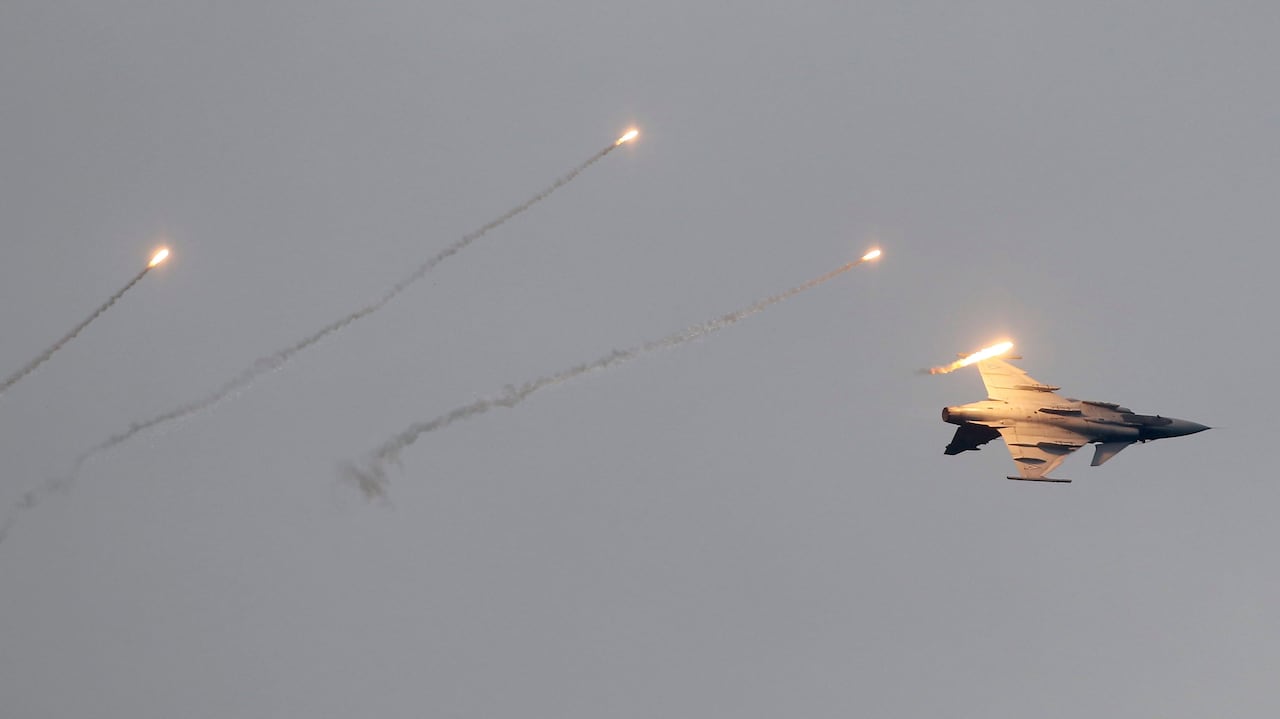Industry minister pushing F-35 maker for economic benefits in Canada

The federal industry minister is putting pressure on U.S.-based Lockheed Martin to provide more economic benefits in Canada if the government is to proceed with its planned purchase of 88 F-35 fighter jets.
Otherwise, Industry Minister Mélanie Joly said in a French-language interview on Radio-Canada’s Les coulisses du pouvoir, Ottawa could move forward with a smaller fleet of F-35s and the acquisition of a second fleet of Gripen-E fighter jets manufactured by Sweden’s Saab. That company has offered to assemble Gripens in Canada.
Joly made the comments as Prime Minister Mark Carney says he is still mulling the fate of the $27.7-billion fighter jet contract.
The minister said she sees two possible avenues for the F-35 review, which began in March, shortly after Carney took office and amid a tariff war between the U.S. and Canada.
She said Ottawa could secure additional economic benefits from Lockheed Martin in exchange for maintaining the full contract.
Joly said the government could otherwise procure a reduced number of F-35s.
Canada has a contractual commitment to purchase at least 16 of the planned 88 Lockheed Martin jets.

“It will be up to the prime minister to decide. But in the meantime, it is certainly my goal to be able to get more out of the F-35 contract from Lockheed Martin, and to continue discussions with Saab,” Joly said.
Acquiring a mixed fleet could prove more difficult for the Canadian Armed Forces to manage, but Joly said she isn't worried about it, especially if additional benefits are forthcoming.
“All G7 countries have a mixed fleet,” she said.
As Canada prepares to substantially increase its defence spending, Joly outlined three priorities: increasing the country's military capabilities, strengthening geopolitical alliances through new partnerships and creating jobs in the Canadian military-industrial complex.
“You can be sure that at the decision-making table, the cabinet table, that's what concerns me: ensuring that Canadian taxpayers' money can be used wisely to reduce our dependence on the United States and also create jobs in Canada,” said Joly.
During testimony before a parliamentary committee last week, two senior leaders of National Defence and the Canadian Armed Forces clearly expressed their preference for the F-35.
Deputy minister Stefanie Beck and Lt.-Gen. Jamie Speiser-Blanchet both extolled the virtues of "fifth-generation" fighter jets like the F-35.
This term refers to stealth capabilities against enemy detection systems, as well as rapid processing of information from multiple sources.
“The importance cannot be overstated of having a fifth-generation aircraft because that's what our adversaries have,” Beck said.
Speiser-Blanchet, commander of the Royal Canadian Air Force, spoke of the urgency of transitioning to a new fighter fleet.

"Both China and Russia have fifth-generation fighter aircraft and fifth-generation missiles that are able to go at much greater speeds and with much more lethality that are holding Western allies at risk," she said.
Both were responding to questions from Conservative MP Ned Kuruc, who complained about the uncertainty surrounding the F-35 procurement program.
But Saab says its Gripen fighter stands out with its ability to be rapidly upgraded.
“Fourth, fifth, even sixth generation are common phrases used to describe the capability of fighter jets, and their definitions are often debated. At Saab, we stopped talking about 'generations' years ago, because Gripen E’s technology, and therefore capabilities, can be enhanced almost daily,” said Saab Canada spokesperson Sierra Fullerton.
Ottawa announced the purchase of 88 F-35s in 2023, following a competitive process that included a comparison of the economic benefits generated by Lockheed Martin and Saab.

David Perry, President of the Canadian Global Affairs Institute, is not convinced of the federal government's negotiating power at the moment, noting that Lockheed Martin would have no difficulty finding new customers if Canada didn't purchase all 88 F-35s.
He said that discussion could be more interesting for Lockheed Martin if Canada purchased even more aircraft as part of its potential participation in the anti-missile system dubbed the "Golden Dome" by the Trump administration.
He said "something bigger on the table" could also make a revised contract "potentially attractive to President [Donald] Trump."
Military expert Philippe Lagassé also doubts Ottawa's ability to obtain concessions from Lockheed Martin unless it increases the size of the contract. He said that there is also a risk of incurring the wrath of the U.S. administration in the context of negotiations on a new economic and security relationship.
“I have difficulty seeing how anyone can propose, after signing a contract, to reopen the contract to add other elements. I'm not saying it's impossible, but it seems unlikely to me,” said Lagassé, chair at the Norman Paterson School of International Affairs at Carleton University.
For now, the Canadian Armed Forces are still getting ready for the arrival of the Lockheed Martin jets.
"What we have as direction is to continue with the contract … with the arrangements that we have in place until we hear otherwise," Beck told the public accounts committee.
"We are full steam ahead, full steam ahead focused on making sure we've got the infrastructure, the pilots, the training in place for the arrival of those F-35s."
cbc.ca





